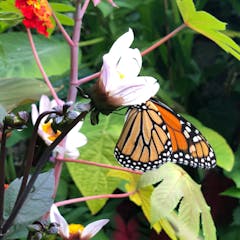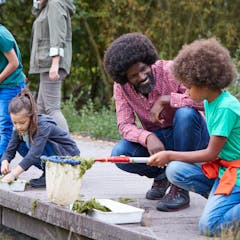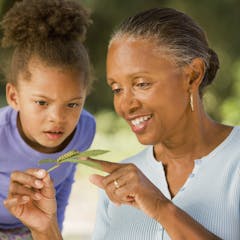
Articles on Environmental education
Displaying 1 - 20 of 26 articles

Sparking global momentum and energy in young people through climate education can go a long way to addressing climate change now and in the near future.

Understanding the success of the ABC’s War on Waste is a lesson in behavioural psychology. Research reveals five ways to guide other entertainment-education interventions to similar success.

For young people seeking to engage with the world’s most critical challenges, the UN Sustainable Development Goals can serve as an entry point. The arts open up possibilities to take action.

‘Etuaptmumk’ or Two-Eyed Seeing is the gift of multiple perspectives in the Mi’kmaw language. A key practice of this in an early childhood outdoor program is walking together and sharing stories.

Nigerian students can support positive environmental behaviour if they learn about the impact of solid waste management on society.

Gardens require huge labour, and outcomes like health, well-being or food security are affected by systemic barriers people face in cities and schools.

Policymakers can boost outdoor education by integrating it into strategies to enhance both student and teacher well-being and equity.

The use of virtual reality and augmented reality in environmental education is controversial, but there are clear benefits.

This Plastic Free July, we need to be teaching children to demand less plastic from the world’s worst producers instead of expecting change from individual recycling efforts.

Teachers and young people told us that action was needed in classrooms, schools, communities and from the government.

Researchers and educators with the Climate Action Childhood network are generating responses to climate change alongside young children.

There are ways to convey the hard scientific facts about climate change and help young generations adapt in the face of adversity and manage change over time.

The climate emergency can’t be addressed with simplistic solutions. A network of Indigenous communities in Brazil invites us to reorient colonial approaches and embrace deeper change.

Peatlands have been central to how northern European folklore has explored fear and a sense of the supernatural for hundreds of years. Their persistence is also key to slowing down climate change.

Canada has an opportunity to become a world leader in early childhood education. With monumental federal support, this is the time to build a sustainable and relevant early education system.

Some designers, makers and consumers are imploring us not to stop sewing after the pandemic because of the potential for utilitarian, psychological and environmental benefits.

Insects are plentiful and inexpensive. Even when children aren’t attending school in person, they can learn from the encounters they have with insects outside.

Moving classes outside deserves serious consideration not only for better ventilation, but also to introduce more education devoted to learning on, from and with the land.

Researchers who visited parks throughout Alberta’s bear and cougar country want to know if parks education is improving park-friendly behaviour.

With colleges and universities having moved their instruction online due to COVID-19, an ecologist shows how service learning can take place in the virtual world as well.
